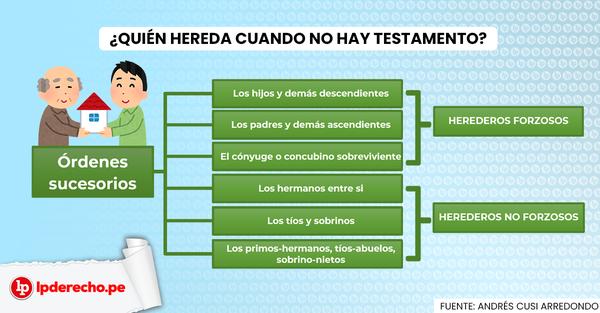How is the inheritance distributed when there is no will? These are always the legal heirs
When a person dies before having drawn up their will, doubts and problems often arise. The most serious drawback is knowing how to distribute the inheritance.
At this time, fights and disputes between family members can arise, which is why it is a difficult obstacle to solve and one that not everyone knows how to face.
In addition, the bureaucracy typical of these situations is another barrier on the road, it requires patience and knowing the steps to follow, especially if the death has been unexpected.
However, when someone who does not have a will dies, they only have to comply with what the law indicates, specifically what appears in the Civil Code.
What happens when someone dies without a will
The first thing you should know is the importance of writing a will. In this way, the deceased ensures that his last wishes will be taken into account and that his heirs will be protected.

For the will to be valid, it must comply with the law, that the person draft it in full cognitive capacity, without suffering threats or bribes and respecting the legitimate heirs.
If these points are not met, it is possible that the will will be declared void and another will have to be drawn up, with the extra cost that this entails.
Now, if the person who has died did not have the opportunity to put their last wishes in writing or directly did not want to do so, there is only the opportunity to follow point by point what the Civil Code establishes.
First, the legal heirs are always the children and the parents. Next in line is the spouse. Then come the brothers, and immediately after the nephews.
Lastly, there are relatives of the fourth degree of consanguinity, that is, first cousins, great-nephews and great-uncles.
Any inheritance that comes from a person without a will must fully respect this order. In the event that it does not occur, the affected heirs can file a complaint and a trial will be held.
How much the spouse inherits if there is no will
This is one of the most tricky aspects, since the spouse's inheritance is usually significantly less if the deceased has not made his will clear.
If there are children and parents, the spouse will receive one third of the inheritance. If there are no descendants, but there are ascendants, the spouse is entitled to half of the inheritance.
If there are neither ascendants nor descendants, the spouse may receive the usufruct of 2 thirds of the inheritance, as indicated by abogadosyherencias.
In any case, if you get to this situation, the best thing you can do is consult a specialist.
